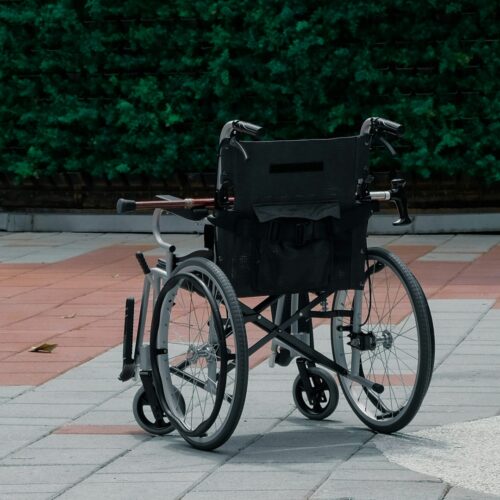Navigating the transition back to school, work, and your social life brings an array of new challenges for people with SCI.
The shift from a life of relative independence to adjusting to a new sense of physicality can be overwhelming. However, it’s important to know that life after SCI doesn’t have to mean giving up on your goals, aspirations, or social connections. With the right support, tools, and resources, young adults can thrive in educational environments, places of work and personal lives.
In this article, we’ll explore the challenges that young adults with SCI face in these areas, offering practical advice, as well as support resources that are available in the UK.
We’ll also share how Aspire Law is there to support young adults throughout their journeys with SCI, providing services from securing compensation packages and access to rehabilitation to interim payments and helping with your housing needs.
The Transition Back to School or Work After Injury
Return to education: Overcoming the hurdles
Returning to school, college or university with an SCI will bring a new set of challenges.
Not only can it be difficult to stay on top of coursework and maintain a social life, but young adults may also struggle with adjusting to new physical limitations, as well as managing the emotions that come with adapting to a different lifestyle.
Accessibility and support in the UK
Schools and other education providers are required by law to make any reasonable adjustments for students with disabilities, as stated by the Equality Act 2010. This might include the following:
- Reasonable adjustments
- Extra support and aids (like specialist teachers or equipment)
- Make buildings accessible for their disabled pupils, as part of their overall planning duties
There’s also funding available for students with SCI. For example, the Disabled Students’ Allowance (DSA) provides financial support for the following:
- Specialist equipment, including a computer
- Non-medical helpers, including a specialist note taker
- Support for travel needs
Mental health considerations
Mental well-being can have a huge impact on one’s life, affecting people’s ability to participate in sports, days out or socialising with friends.
Sadly, it’s common for young adults with disabilities, including spinal cord injuries, to experience mental health issues. According to the World Health Organisation, 1-2 in 10 people with SCI show significant signs of depression.
For young people with SCI, the pressure alone to keep up with their academic studies is enough to cause stress and anxiety, let alone while coping with the effects of their injury as well. The overall effect can feel very overwhelming, causing individuals to feel lost and isolated.
Fortunately, there are many avenues for support with mental health, including the NHS, charities like Mind and Aspire, as well as the education providers. It’s important to access these services if you’re feeling alone or stressed.
Back to work: Navigating employment post-SCI
If you’re returning to work after your injury, you might require some significant adaptations. Especially if your role isn’t remote, your working environment may not always be accessible anymore for your current physical capabilities.
Fortunately, there are resources in place to ensure that people with SCI aren’t left behind in the workplace.
Your rights under the Equality Act 2010
In the UK, we have laws in place that protect employees with disabilities. Under the Equality Act 2010, the law ensures that you cannot be discriminated against due to your disability. It also means that your employer must provide reasonable adjustments, such as accessible office spaces, adapted equipment or flexible hours.
‘Access to Work’ scheme
The UK government’s ‘Access to Work’ scheme provides funding to help you get a job or stay in work. This can help you with:
- Practical support with your work, including specialist equipment, assistive technology, costs of travelling to work and adapting your vehicle
- Mental health support, including one-to-one sessions with a mental healthcare professional
- Communication support for job interviews
This financial support can make a significant difference when transitioning back to work, especially in roles that require additional equipment or travel adjustments.
Challenges in Relationships and Independence
Impact on personal relationships
One of the most difficult aspects of life after SCI can be navigating any changes in personal relationships. These changes can be felt across your network, whether you notice them with family members, romantic partners, or friends.
Family dynamics
A spinal cord injury can mean uncertainty for both you and your family. Many aspects of your life will have changed, which will have a knock-on effect on your family, especially if you’re still living together. Young adults will find themselves in a position where they need to rely more on their family members, particularly with daily tasks, which can shift family dynamics.
As with all of the relationships in your life, open and honest communication is essential for making sure that everyone feels heard and understood.
Romantic relationships
Your injury may also affect your romantic relationships. With all of the changes your body naturally experiences, SCI can exacerbate feelings of inadequacy and discomfort. If you can maintain an open line of communication with your partner, seek advice from your friends and speak to a counsellor, so that you can overcome any obstacles that arise.
Building independence after SCI
The journey to regaining your independence with a spinal cord injury can be challenging. However, the important thing to remember is that achieving independence after SCI is possible. Unlocking independence across a range of day-to-day activities, including personal care, travelling and household chores, is invaluable, both for your mental and physical health.
Small adjustments in your daily life can make a huge difference during your healing journey. Through home modifications, incorporating smart home technology and finding other assistive technology, you can start to live more independently.
Additionally, accepting help when needed is essential during this adjustment period. Trying to strike a healthy balance between receiving help and maintaining your independence can be invaluable for your rehabilitation. Support groups can play a big role in helping young adults with SCI find this balance, offering both practical advice and emotional support.
Support Resources
There are many resources available to young adults with SCI in the UK. These include:
- Aspire: A dedicated national charity that works to provide practical support to people with spinal cord injuries.
- Back Up: An organisation that works alongside people and families to rebuild confidence and independence after spinal cord injury
- Disability Rights UK: The UK’s leading organisation that is led and run by disabled people who are striving to drive change in accessibility, benefits, quality of life and economic opportunities.
Receive Support With Aspire Law
With the right support systems, resources, and legal protections in place, young adults with SCI can continue to lead fulfilling, independent lives.
Remember, you are not alone. Life after SCI may look different, but with the right tools and support networks in place, you can still experience a life full of success, happiness, and meaningful connections.
At Aspire Law, we’re here to help you get access to the very best rehabilitation, care, housing, transport, and support services. As the UK’s leading law firm for spinal cord injury claims, we are experts in our field and work tirelessly to get you the compensation you deserve.
So, if you or someone you know needs legal support related to a spinal cord injury, don’t hesitate to get in touch with our team today.



